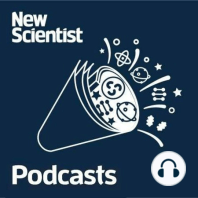32 min listen

Weekly: Record-breaking fusion experiments inch the world closer to new source of clean energy
Weekly: Record-breaking fusion experiments inch the world closer to new source of clean energy
ratings:
Length:
23 minutes
Released:
Feb 9, 2024
Format:
Podcast episode
Description
#236This week marks two major milestones in the world of fusion. In 2022 a fusion experiment at the Lawrence Livermore National Laboratory created more power than was required to sustain it – now, the same team has improved this record by 25 per cent, releasing almost twice the energy that was put in. Meanwhile, the UK’s JET reactor set a new world record for total energy output from any fusion reaction, just before it shut down for good late last year. Why these two milestones inch us closer to practical, sustainable fusion energy – but still leave a significant distance to go.A historic drought has caused a shipping traffic jam in the Panama Canal, one of the world’s most important shipping routes. Record low levels of water mean fewer ships can pass through the intricate system of locks that carry them across the narrow strip of land. As climate change increases the likelihood of extreme drought, how could this impact both the cost of shipping goods and Panama’s economy?Microdosing LSD may not have psychedelic effects, but it still causes noticeable changes in the brain. Researchers gave people tiny amounts of the drug while measuring their brain activity and noticed their brain signals became far more complex, even though they didn’t feel any hallucinatory effects. What this study tells us about the relationship between consciousness and neural complexity.Magma flowing into a giant crack formed by this year’s volcanic eruption in Iceland was caught moving at a rate of 7400 cubic metres per second – the fastest ever recorded for this kind of event. The kilometres-long crack first began producing eruptions in December last year, and another began just this week. So what’s next for the people living nearby? Plus: The asteroid Bennu may be a chunk of an ocean world; a new, lightning-dense thunderstorm spotted by satellites; rediscovering the bizarre-looking sharp-snouted Somali worm lizard after more than 90 years.Hosts Christie Taylor and Sophie Bushwick discuss with guests Matt Sparkes, James Dinneen, Grace Wade and Michael Le Page. To read more about these stories, visit newscientist.com. Hosted on Acast. See acast.com/privacy for more information.
Released:
Feb 9, 2024
Format:
Podcast episode
Titles in the series (100)
#25: Coronavirus effects on children, and on other diseases; changing the way you sit could add years to your life; supercrops for a climate-changed world by New Scientist Podcasts